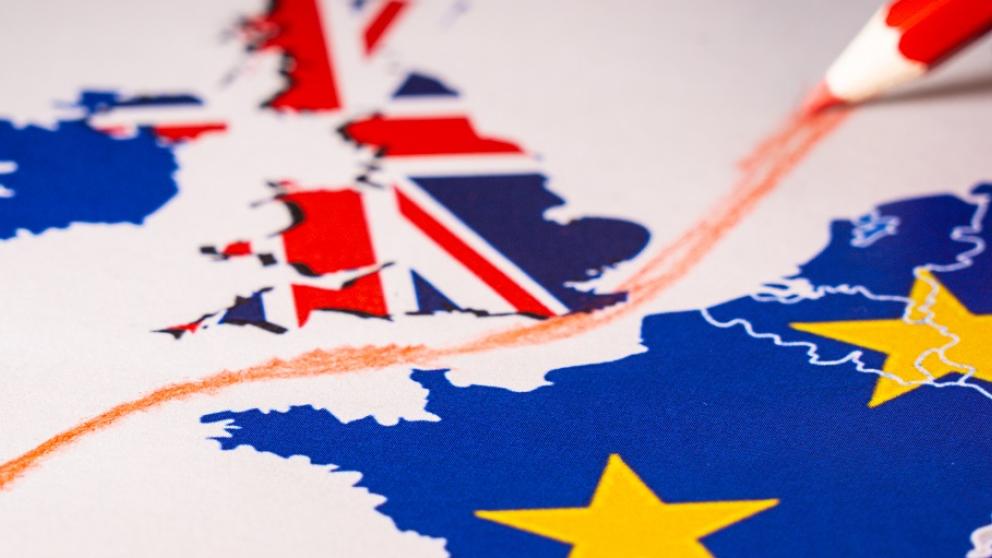
Trade and economic experts Maria Rana and Gordon Fletcher assess the situation 12 months after Brexit, looking at the impact on trade among other things.
These quotes were used in Business Leader magazine.
Maria Rana, economics expert at the University of Salford Business School, said: “In October 2021, the chairman of the OBR (Office for Budget Responsibility) said that the long term impact of Brexit on the UK’s economy will be worse than the impact of the covid pandemic.
“From supply chain disruptions to shortage of labour, Brexit has exacerbated the impact of the pandemic on the UK’s economy. SMEs that trade with the EU not only have to face higher costs but they have also additional paperwork to fill, making international trade with European countries difficult.
“But, how important is the EU for the UK’s international trade? Given the geographical and cultural proximity of the UK to Europe, is it not a surprise that the European countries have historically been among the major trade partners of the UK.
“According to the latest report on international trade published by the ONS in October 2021, the top five recipients of UK’s exports are the US, Germany, Ireland, Netherlands, and France. While among the top five exporters to the UK we have Germany, China, US, Netherlands and France.
“In 2016, (the year of the Brexit referendum), 48% of the UK’s goods were exported to the EU, while goods imported from the EU were more than those imported from the rest of the world. The share of the UK’s goods and services to the EU decreased from 54% in 2000 to 43% in 2016, but still a significant percentage. Most of this decline was mainly due to a decrease in exports of goods rather than services.
“From January to March 2021, the total of imports and exports from and to countries outside the EU exceeded that from EU countries. Exports to Ireland, proportionately, decreased the most (among top five recipients of UK’s exports) after the transition period; imports from Germany also decreased. Since the ONS’s records began in 1997, the UK has imported more from Germany (which is the UK’s largest trading partner within the EU) than from any other country.
“In October 2018, the UK’s Government published a strategy for trade policy after Brexit, emphasising the importance and the opportunities available by trading with countries beyond the EU member countries. Did that strategy work out as planned? Not really, many of the trade deals the UK was hoping for did not work out. The empty shelves we have seen, the shortage of labour in some industries, and the related increase in prices are easily attributed to the pandemic, but the reality is that Brexit has made the situation worse for the UK.”
The benefits of frictionless, seamless trade
Gordon Fletcher, retail and trade expert from the University of Salford Business School, argues that Brexit has taught us two major lessons. He comments: “The two biggest lessons Brexit has emphasised are the many benefits of frictionless, seamless trade and the power of working collectively. You never realise what good things you have until you lose them.
“The House of Commons Library published “Progress on UK free trade agreement negotiations” at the beginning of March. Since Brexit, three new free trade agreements have been concluded with Australia, New Zealand and Singapore. The benefits of these agreements are difficult to calculate, but the Government’s own assessment is that the Australian agreement – the largest of the three – could directly benefit wages with a 0.1% increase and see a similar increase in overall GDP.
“These agreements are small compensation for the impact on trade with the EU post-Brexit – even after the impact of covid lockdowns are considered. The statistics show declines but also reveal a shifting balance of activities as UK importers look to other markets. Given that the UK neighbours the EU in all directions, a shift in international trade also brings the prospect of less sustainable, carbon-generating global supply chains.
“Working to negotiate an agreement with every trading nation takes time. The UK negotiators are now pursuing more collective agreements. There are prospects of agreements with the eleven country Trans-Pacific Partnership, which represents over £8 trillion in combined GDP and the six-state Gulf Co-operation Council which has a combined £3.5 trillion GDP. Of course, while the UK was part of the EU, it was also witness to the protracted negotiations between the EU and the GCC as well as the TPP. There is little to indicate that the individual approaches of the UK will accelerate a successful agreement with either blocs when the EU has struggled previously.”
For all press office enquiries please email communications@salford.ac.uk.
Share:
